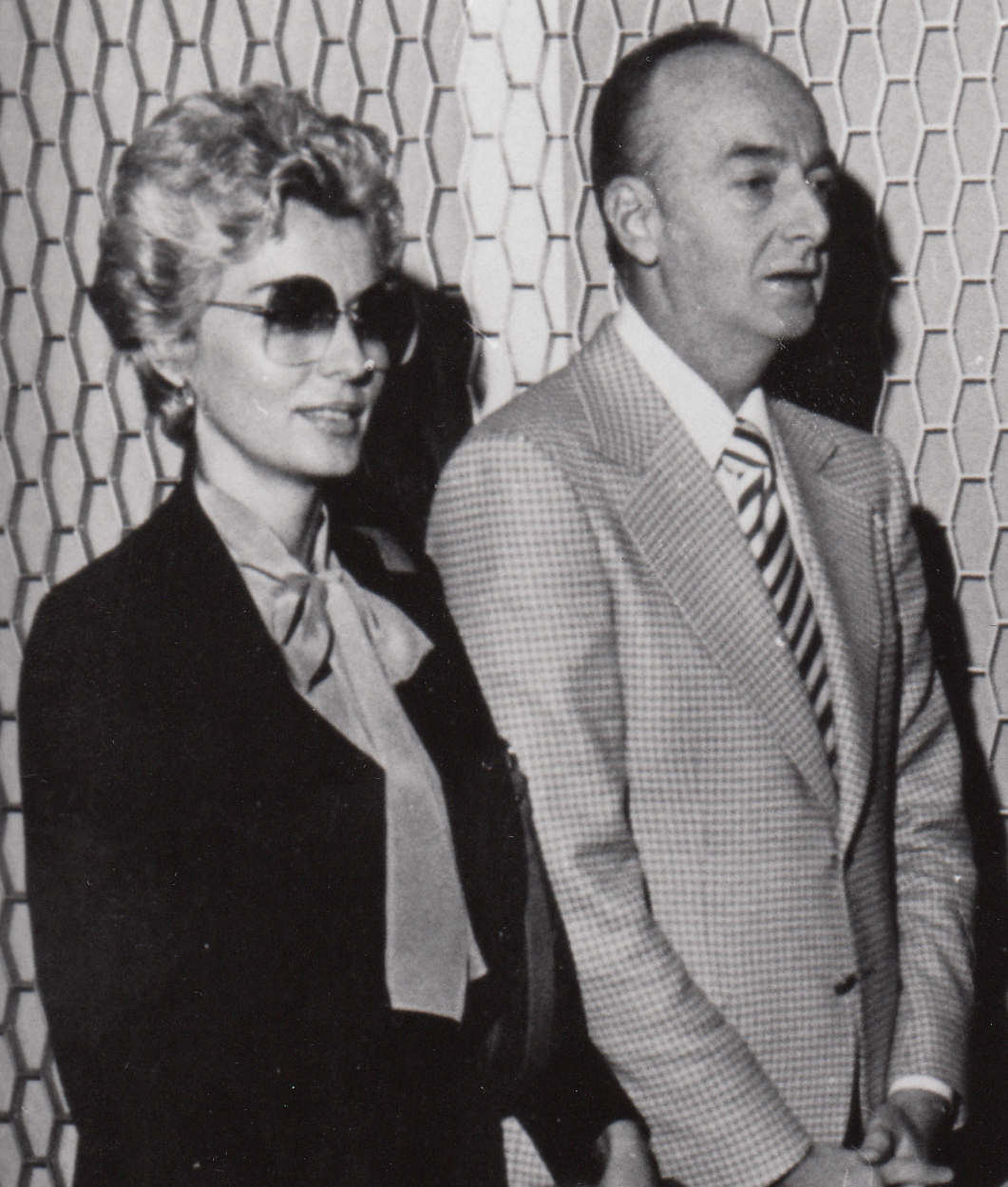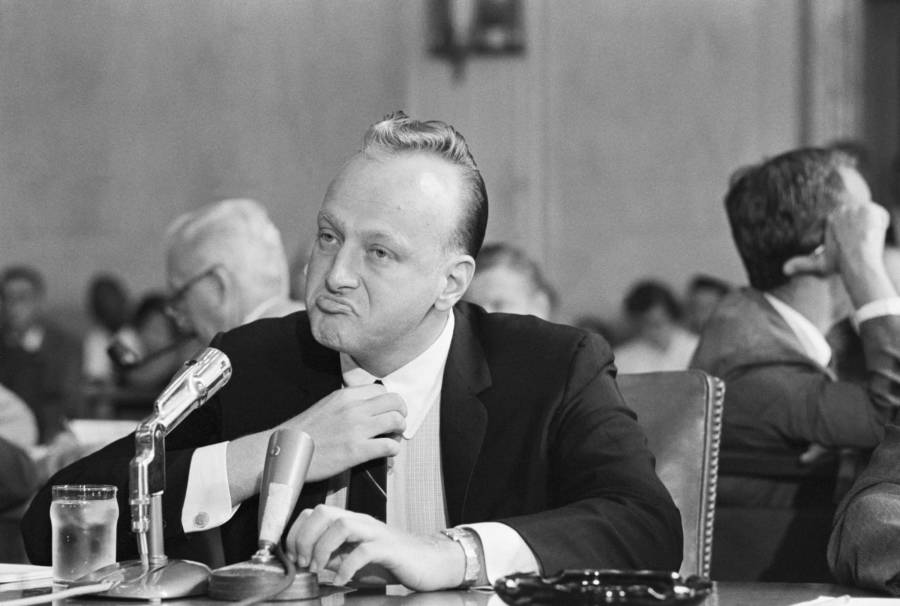The Real Frank "Lefty" Rosenthal: Beyond The Casino Movie & Legacy
Was Frank "Lefty" Rosenthal, the man who reshaped Las Vegas, a visionary businessman or a pawn in a deadly game? His life, a whirlwind of ambition, betrayal, and brushes with death, cemented his legacy as one of the most intriguing figures in the history of organized crime and casino management.
Frank Rosenthal, a name synonymous with the golden age of Las Vegas, remains a figure shrouded in both legend and controversy. His impact on the city's gambling scene is undeniable, yet the shadows of his alleged mob ties cast a long shadow. The 1970s in Las Vegas were a period of unprecedented growth and excess, a time when the city transitioned from a desert outpost to a global entertainment hub. At the heart of this transformation was Rosenthal, a man known for his sharp intellect, innovative gambling practices, and his deep connections to the underworld. He was, in many ways, the architect of modern sports betting in the city, revolutionizing the way wagers were placed and managed. He was the pioneer who understood the power of televised games and the importance of creating a sophisticated, user-friendly experience for bettors.
| Frank "Lefty" Rosenthal - Bio Data | |
|---|---|
| Full Name: | Frank Lawrence Rosenthal |
| Nickname: | "Lefty" |
| Born: | June 12, 1929 |
| Died: | October 13, 2008 (Age 79) |
| Place of Birth: | Chicago, Illinois, USA |
| Residences: | Las Vegas, Nevada; later Long Beach, California |
| Spouse(s): | Geraldine "Geri" McGee (divorced); Jennifer Deluca (married) |
| Children: | Steven Rosenthal, Stephanie Rosenthal |
| Known For: | Casino Executive, Sports Handicapper, Alleged Mob Associate |
| Inspiration for: | "Sam "Ace" Rothstein" in the movie Casino |
| Reference: | Britannica - Frank Rosenthal |
Born in Chicago, Illinois, Rosenthal's journey to the pinnacle of Las Vegas's gambling world was marked by a shrewd understanding of numbers and a knack for identifying opportunities. He quickly became a prominent figure in the world of sports betting. This led him to the attention of organized crime, who saw his expertise as a means to control the lucrative gambling operations in Las Vegas casinos. He rose to power, becoming a key figure in the skimming operations that would later be the subject of intense scrutiny and public attention. He was a man who understood the mechanics of gambling, from the intricacies of odds-making to the management of large-scale casino operations.
The 1995 film Casino, directed by Martin Scorsese, immortalized Rosenthal's life on the big screen. In the film, Robert De Niro portrayed the character of Sam "Ace" Rothstein, a fictionalized version of Rosenthal. The movie, a cinematic masterpiece, captured the glitz, glamour, and brutality of Las Vegas in the 1970s. It depicted the inner workings of the casinos, the skimming operations, and the volatile relationships between the mob figures and their associates. The film's success brought Rosenthal's story to a global audience, further solidifying his place in popular culture and transforming the real-life events into a modern-day morality tale.
Rosenthal's influence extended far beyond the confines of the casinos he oversaw. He was a pioneer in many aspects of casino management, implementing innovative practices that are still used today. His contributions to gambling innovations were significant, including his development of sophisticated surveillance systems and his understanding of how to attract and retain high-roller clientele. He understood the importance of customer service and created a luxurious environment, enticing customers to spend more. The casinos under his control were known for their lavish amenities, impeccable service, and, of course, the thrill of the game.
However, beneath the surface of Rosenthal's success lay a darker reality. His association with organized crime families led him to become a central figure in a massive skimming operation. He was responsible for ensuring that the casinos, under mob control, generated enormous profits, much of which was siphoned off to organized crime families in the Midwest. This illicit activity, meticulously documented in court records and investigative reports, exposed the corrupt underbelly of the Las Vegas gambling scene. His role in the skimming operation would ultimately lead to investigations by federal authorities, culminating in indictments and legal battles that would shape the remainder of his life.
One of the most dramatic events in Rosenthal's life was the attempted car bomb assassination that nearly took his life. In 1982, a bomb exploded in his car outside the Tony Roma's restaurant in Las Vegas. He survived the blast, an event that dramatically illustrated the violent nature of the world he inhabited. The attempted assassination underscored the risks and dangers associated with the mob's control over the casinos.
Rosenthal's relationship with Geri McGee, depicted in the film Casino, was another defining aspect of his life. Their tumultuous relationship, marked by love, loyalty, and betrayal, became a focal point of the film. Geri, portrayed by Sharon Stone, was a complex character whose struggles and vulnerabilities added a human dimension to the narrative. Their relationship eventually crumbled, a testament to the corrosive impact of the dangerous world they inhabited.
The Senate investigations committee played a crucial role in exposing the extent of organized crime's influence in Las Vegas. In 1961, Rosenthal testified before the committee, shedding light on the inner workings of the gambling industry. His testimony, along with other revelations, contributed to the growing public awareness of the mob's activities in the city. These investigations were instrumental in dismantling the corrupt systems that had taken root in Las Vegas and bringing the individuals involved to justice.
Rosenthal's role in bringing sports betting to Las Vegas was pivotal. He revolutionized the way sports wagers were placed and managed, creating a sophisticated and user-friendly experience for bettors. His understanding of the power of televised games and his ability to create a luxurious environment attracted a large number of high-roller clientele. His practices and strategies are still used in the gambling industry today, serving as a testament to his innovative approach.
Despite the scandals and controversies surrounding him, Rosenthal's legacy is undeniable. He left an indelible mark on Las Vegas. His contributions to casino management and gambling innovations have shaped the city's entertainment industry. His story is one of ambition, betrayal, and survival, a reflection of the changing times and the constant struggle for power and control. His life continues to fascinate and intrigue, a reminder of the allure and danger of the glittering world of Las Vegas.
In conclusion, Frank "Lefty" Rosenthal remains a compelling figure, a complex individual who defied easy categorization. He was a brilliant casino executive, a sports handicapper, and a central figure in the mob's operations. His story is a cautionary tale of the risks and rewards of power, ambition, and the allure of the gambling industry. His legacy continues to evolve, shaping the way we understand the history of Las Vegas. His impact is evident, from the cinematic portrayal of his life to the very essence of how modern casino management operates. Whether viewed as a visionary or an outlaw, Rosenthal's mark on Las Vegas remains permanent.


